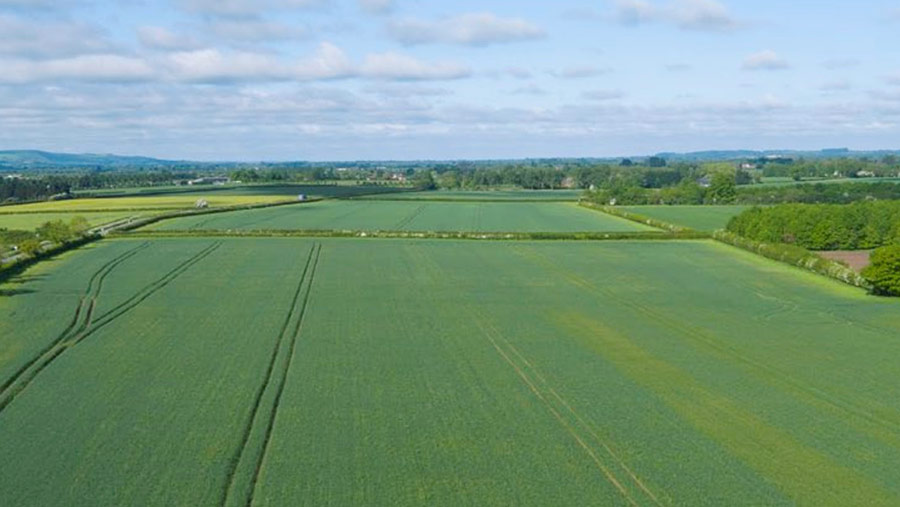Farm and land spring sales: What and how you should prepare

Those looking to put farms on the market in spring should use the winter months to prepare and enhance the value of their property, advise agents.
Despite moves towards a year-round launch trend in recent years, spring remains a popular time to advertise a farm.
Farmers are being advised that a more proactive approach to preparation in the coming weeks could pay off in six months’ time.
In the case of the three Ds – death, debt and divorce – which remain the main reasons farms are brought to market, good planning and a long lead-in time is not always possible.
See also: How to choose the right way to sell your farmland
But for retirees, strategic sales and those consolidating holdings, autumn is the optimum time for preparations, says Andrew Chandler, partner at Carter Jonas.
He recommends sellers targeting farm launches from March 2019 should begin getting things in order now.
Shorter days and less fieldwork gives more time to gather paperwork and schedule a programme of maintenance that ensures the farm looks its best for viewings.
“Buyers are getting more discerning, and if you aren’t selling a farm in a competitive hotspot, you need to make sure you are bringing something that really shines,” he said.
The winter window gives ample time to increase the value of the farm by obtaining planning permission for certain buildings.
He says farmers who are going to sell in the spring and have buildings that could fall under permitted development rights are “missing a trick” by not obtaining the basic permissions that could increase sale value.
“If you’re in an area that allows permitted development and Class Q it’s well worth putting in the 56-day notice.
“In 2016, I was working for Adkin and sold Lyford Grange in Oxfordshire, which had a set of buildings where we got permitted development rights just before the launch.
“It put an underlying value on the buildings, which meant they went from being possibly worth £200,000 to definitely being worth £450,000. It’s about taking out the uncertainty.
Mr Chandler cautions that blanket overage clauses (which give the seller the right to be paid a proportion of any increase in value when planning permission is obtained subsequent to the sale) are turning buyers off and are one of the main reasons why negotiations stall.
What should spring sellers be working on?
General maintenance: clearing ditches, felling dead trees, repairing buildings and working on the general aesthetics of a property will mean it shines in the spring.
Planning permission: whether it’s full planning permission or permitted development rights, sellers have time to put applications in which will give confidence and clarity to would-be buyers over what potential the farm has for investment.
Paperwork: preparing cropping schedules, finding wayleaves, documenting sporting averages and making drainage maps available are all jobs that can be done now and not left until spring when fieldwork begins to take over.
All of these will be required so it is as well to gather them in good time.
Professional advice: meet your bank manager, accountant, solicitor and farm agent to tell them about your plans and take advice on what you need to do to get your affairs in order.
Pictures: if the farm is looking good and the weather is clear, take photographs. If, like 2019, the rest of the market is delayed because brochure photography can’t be completed due to the weather, you will have a competitive advantage.
You also have the option to launch at any time if photographs are already taken.
